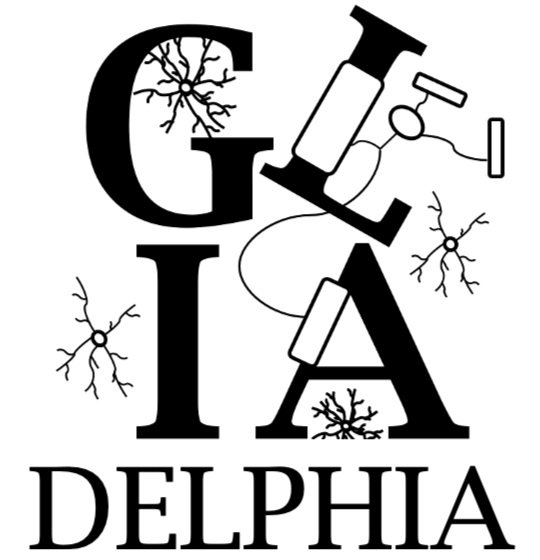
Our member labs
-
A. Mortensen Lab
Drexel. Our lab seeks to study the regulation and modulation of glutamate transporters in healthy and diseased states. Learn more.
-
Barker Lab
Drexel. Our lab aims to understand the neurobiological bases of behavioral flexibility and cognitive control, and the mechanisms by which these processes are dysregulated in neuropsychiatric illnesses. Learn more.
-
Bar-Or Lab
Penn. Mechanisms of immune regulation and immune:CNS/glial interactions. MOA of Therapeutics targeting CNS inflammation. Biomarkers. Learn more.
-
Blanco-Suarez Lab
Jefferson. Astrocyte-mediated plasticity mechanisms in injury/stroke. Learn more.
-
Center for Neurotrauma, Neurodegeneration, & Restoration (CNNR)
Penn. TBI with coma using head rotational acceleration, focusing on astrocyte pathology. Use of neuroblasts from adult subventricular zone i to provide sustained delivery and promote regeneration. Learn more.
-
Eisch Lab
Penn. Hippocampal health, injury, and disease. Learn more.
-
FC Bennett Lab
Penn. We use exciting techniques to understand the origin and function of microglia and to advance microglial replacement therapies. Learn more.
-
Garcia Lab
Drexel. We study the role of astrocytes in the central nervous system. Through the lens of Sonic hedgehog signaling between neurons and astrocytes, we investigate its potential importance in mediating experience-dependent plasticity. Learn more.
-
Gaskill Lab
Drexel. We examine the immunomodulatory impact of neurotransmitters, mostly dopamine, and substances of misuse on myeloid cells in disease. We primarily examine these effects in the context of HIV and inflammation. Learn more.
-
Goldsmith Lab
Jefferson. Autophagy in neurons and glia and its role in neurodegeneration and neuroinflammation. Learn more.
-
Grinspan Lab
CHOP. Oligodendrocyte maturation and myelination during development and remyelination following demyelinating disease. Learn more.
-
Haney Lab
Penn. We use in vitro and in vivo CRISPR screening approaches to ask questions about glial biology and neuroimmunology in the context of aging and neurodegenerative diseases. Learn more.
-
Hernan Lab
Nemours. We study pediatric epilepsy, trying to understand the role of astrocyte dysfunction and astrocyte-neuron dynamics in behavioral impairments that occur in epilepsy. Learn more.
-
Jackson Lab.
Drexel. We study how brain cells - in particular astrocytes - interact to regulate behavior and physiology. Learn more.
-
Jensen Lab
Jefferson. We focus on molecular pathways underlying ALS, with an emphasis on the contribution of glia in driving disease progression. Using various in vitro and in vivo modeling systems, we aim to identify iand target candidates with therapeutic potential. Learn more.
-
Jordan-Sciutto Lab
Penn. We are interested in the role of neuroinflammation induced by HIV-infection of microglia on neuronal function and oligodendrocyte differentiation and myelination. We have been examining organellar response to neuroinflammation and HIV related stimuli. Learn more.
-
Kang Lab
Temple. Glial progenitors and oligodendrocyte abnormalities in CNS diseases. Learn more.
-
Klase Lab
Drexel. Persistence of HIV in the CNS and the issue of substance use. Learn more.
-
Lepore Lab
Jefferson. Cellular mechanisms underlying the pathogenesis of traumatic spinal cord injury (SCI), specifically respiratory dysfunction and chronic neuropathic pain. Cutting-edge therapeutic strategy development that can be translated to individuals affected by SCI. Learn more.
-
Mariko Bennett Lab
CHOP. We study the form and function of microglia in pediatric neuroimmunological disease. Learn more.
-
Meucci Lab
Drexel. Neurological complications of neuroHIV. Learn more.
-
Neonatal Brain Injury Lab
Nemours. Mechanisms of early life brain injury with emphasis on neuroimmune mechanisms of injury and recovery. Specific interest in neonatal hypoxic ischemic brain injury and immunomodulatory technology. Learn more.
-
Orthmann-Murphy Lab
Penn. Role of glial cells in acquired and inherited disorders of myelin. Learn more
-
Pearce Lab
Rowan (Glassboro). Mechanisms of phagocytic glia in the spread of protein aggregate pathology in neurodegenerative diseases. Learn more.
-
Schwarz Lab
University of Delaware. Role of immune function / microglia in neurodevelopmental disorders and postpartum depression animal models. Learn more.
-
Silva Markovic-Plese Lab
Jefferson. Immunopathogenesis of multiple sclerosis and other CNS inflammatory diseases. Learn more.
-
Song Lab
CHOP. Our long-term goal is to elucidate the cellular and molecular basis governing the formation, maintenance, and function of neural circuits under physiological and pathological conditions, working with fly and mammalian models. Learn more.
-
Raghupathi Lab
Drexel. We study cell death and plasticity after traumatic injury to the mature and immature brain. Learn more.
-
Rivella Lab
CHOP. We work on ex vivo and in vivo gene therapy technologies, focusing on genetic modifications of hematopoietic stem cells as well as brain cells. Learn more.
-
Vanderver Lab
CHOP. Our translational research model is aimed at developing a robust understanding of leukodystrophies and other heritable conditions affecting the white matter of the brain. Learn more.

